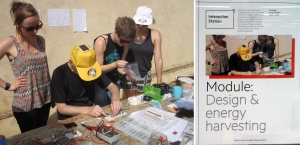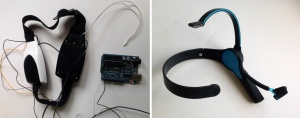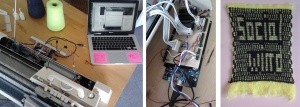Difference between revisions of "Research"
| Line 3: | Line 3: | ||
==Research (Beam): Design and Energy Harvesting== | ==Research (Beam): Design and Energy Harvesting== | ||
| − | Specially for WdKA students | + | Specially for WdKA students<BR> |
| − | Tons | + | Tons of info on how to make your design having an independent source of energy. |
*[http://interactionstation.wdka.hro.nl/wiki/Design_and_Energy_Harvesting_research Design & Energy Harvesting]<BR> | *[http://interactionstation.wdka.hro.nl/wiki/Design_and_Energy_Harvesting_research Design & Energy Harvesting]<BR> | ||
Revision as of 18:39, 9 May 2015
Research (Beam): Design and Energy Harvesting
Specially for WdKA students
Tons of info on how to make your design having an independent source of energy.
Research (Beam): bluetooth boards in connection with the Neurosky Mindwave brain scanner
For connecting the Neurosky Mindwave, which can sensor brain signals directly to an Arduino (or comparable) we compared several Bluetooth boards:
By the way, the hacked Mindflex sends the same data as the Mindwave Mobile, but is connected directly, using wires to an Arduino.
Research (Beam): hacking the KH-940 machine knitter
This is called lobotomy - brain transformation - of the knitting machine KH-940. The hardware in the machine is removed and replaced with an Arduino Due. This microcontroller with a special board and special software can connect to the KH-940 knitting machine. You can prepare images for knitting in several knitting techniques. Not only Nordic, but also patent stitch, slip stitch, weave stitch and other stitches.
For me it is fun to develop datavisualisation in knitting:
Demonstration: 28-05-2015
Research (Beam): Making Relief prints using a 3D printer
This investigation was combining the "old" analog relief print press with the "new" 3D printer. The 3D printer is used to create plates which can be printed using the relief print press in the Publication station. Possibilities of the 3D printer, like the fill patterns are used to create special effects. In the workflow the Blender plugin which can make relief from images is used.
It all started on a small river near a small town in Holland:
[2]
A draft research paper can be found here:
[3]



